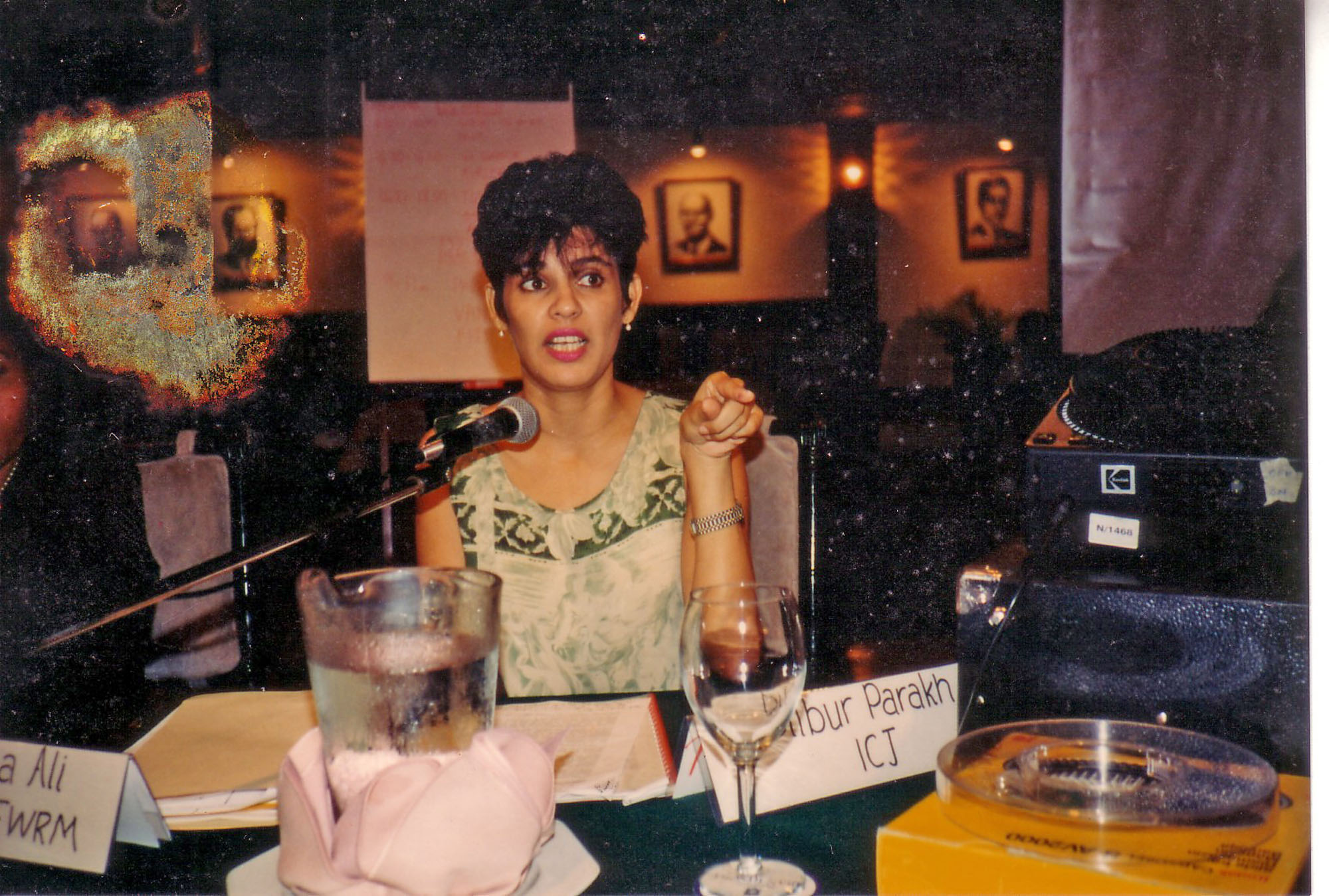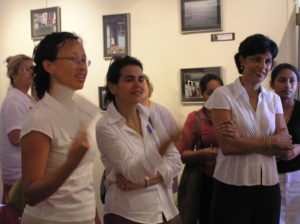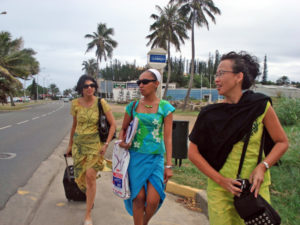

WOMEN human rights defenders the world over are known to suffer rejection and harassment, the threats coming from a multiple of sources.
And Imrana Jalal’s experience was no less, she was once accused of “inciting men to commit rape” and labelled an “evil force in society”.
And it was all because of her role in the construction of the Family Law Act and articles she penned about women’s issues on a weekly basis for The Fiji Times.
She still regards the reform of the Family Law Act as the highlight of her career and a game-changer for Fiji.
But her view was certainly not shared by prominent actors in Fijian society in the early 2000s.
Imrana worked with many others on the reform for 12 years, through several governments and several coups.
Even when she was appointed Commissioner for Family Law, getting the document accepted and endorsed was a difficult and arduous journey with many ups and downs.
It involved persuading 71 parliamentarians, twice, in two different parliaments.

“The Family Law Act 2003 is an important reforming piece of legislation,” she said.
“And I suppose, it will forever be associated with me as its architect, warts and all, the good and the bad.
“A New Zealand lawyer told me that she recently had to work with both the NZ and Fiji legislation and that the Fiji one was significantly better than the NZ one.
“The Fiji Women’s Rights Movement’s recent study, partly on the efficacy of the legislation, proves that it did change women’s lives for the better.”
Before the Family Law Act 2003, family law in Fiji was based on nine pieces of legislation imported from the United Kingdom between 1892 and 1973.
Imrana said it discriminated against women, legitimated violence against them, was sexist, patriarchal and based on rigid concepts of women’s roles within the family.
The process to change the law took many years but the Bill was ready in April 2000.
The May 2000 coup d’etat held up enactment for a few more years until, finally, the Family Law Act was passed in 2003 and became effective in 2005.
It was not all smooth sailing for Imrana.
She faced opposition to the Bill along the way.
For example, the Fiji Methodist Church called Imrana an “evil force in society” and accused her of trying to destroy the institution of marriage.

“During this period I was also penning a weekly column on women and social issues for The Fiji Times.
“I was accused in the Senate during a debate by a high chief of ‘inciting men to commit rape’ because my comments would anger men.
“He said that he himself felt like that when he read my columns.
“A journalist friend, who at that time was travelling in Nepal, said these comments were a news item in a Nepali newspaper!
“Shameful behaviour really. To give the Senator due credit, he eventually apologised and once even attended a fundraiser at FWRM.”
The then-new law gave unprecedented rights to women and children, including divorced women, to a share of matrimonial property.
It allowed victims of domestic violence to divorce their husbands after one year’s separation instead of a three-year “sentence” of wife-beating. It also gave men some rights that they never had before.
“It created a level playing field between men and women. It put children at the centre of all decisions.
“Ultimately, if the family law failed to meet its promise it would be because people failed to make it work and it lacked the appropriate human and financial resources.
“For me personally, this law was a culmination of a journey, 12 years in the making.
“Not all stakeholders were happy with all parts. I was heavily criticised by some feminists who believed that I had sold out by not insisting that de facto partners be
given the same rights as married partners, a position I had initially insisted on.
“I was forced to compromise with the then Attorney-General Qoriniasi Bale and
omit legalising de facto partnerships.
“I knew this was a battle we would not win with the conservative legislatures of
the day and I was not prepared to jettison the whole legislation on this basis.
“At the end of the day, all legislation has to be a compromise of many different
views. That is the nature of democracy.”
Pacific Regional Rights Resource Team (RRRT)
Part of Imrana’s legacy is co-founding the Pacific Regional Rights Resource Team (RRRT), with a large grant from the United Kingdom Department of International
Development (DFID).
“During that time, Kim Stanford-Smith of DFID and I formed a regional organisation called RRRT.
“We shared a sense of injustice about women and about the need to build a human
rights culture in the Pacific Islands.
RRRT grew at an exponential rate taking on a life of its own.”
RRRT has become a successful and visible agency working in many Pacific Island countries in the field of human rights and is currently under the Pacific Community (SPC).
It works on building a network of community paralegals/local human rights
defenders in several Pacific Island Countries; human rights compliant legislation,
new human rights consistent judgments, helping governments and NGOs prepare
UN reports, accountable leadership at community levels and the delivery of civil, political, economic and social rights.
RRRT won the prestigious 1998 UNICEF Maurice Pate Award from a field of 111 international candidates.
It was cited as an Asia-Pacific Best Practices rightsbased approach project by the Offi ce of the High Commissioner for Human Rights.
During this time Imrana also helped co-found and establish the Fiji Human Rights Commission (FHRC) and she became one of the first Human Rights Commissioners.
She resigned after the coup of 2000.
Imrana remembers negotiating with Jai Ram Reddy to establish the FHRC and credits him with having the vision to see it through and to embed it in the 1997 Constitution.
She credited lawyers such as Florence Fenton, who was at the helm of the Fiji Law Reform Commission in the early 2000s and her former boss, Qoriniasi Bale, who was then the Attorney-General, for their role in supporting the drafting and passing of the Family Law Act.